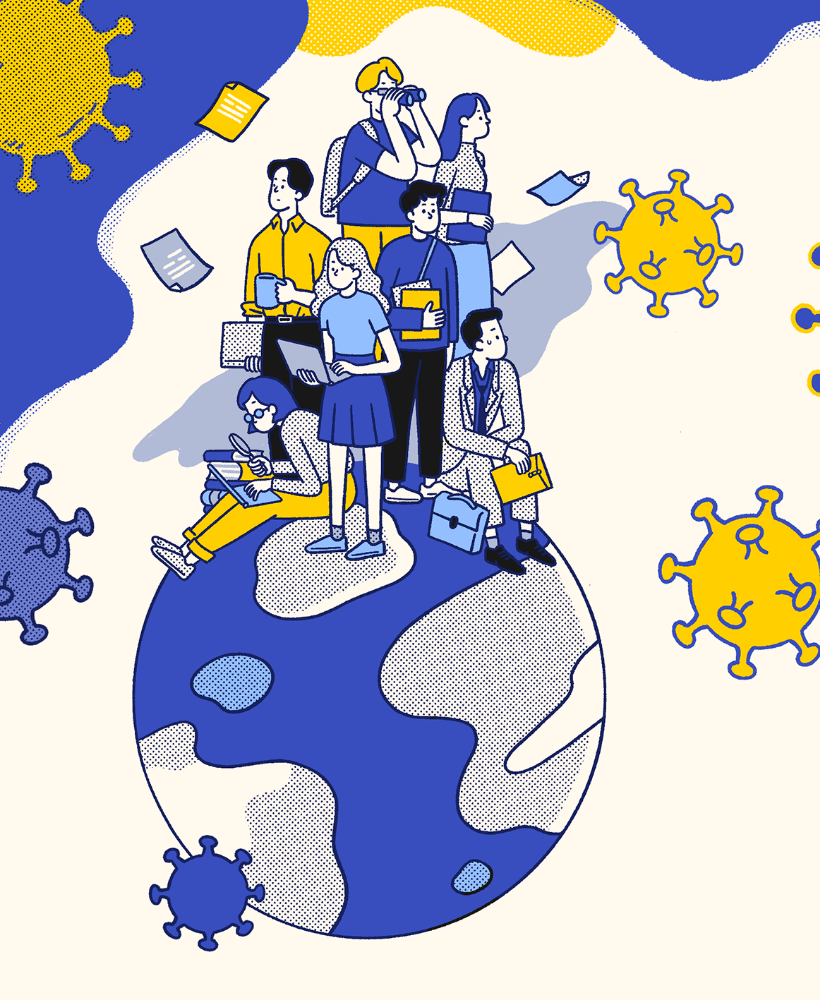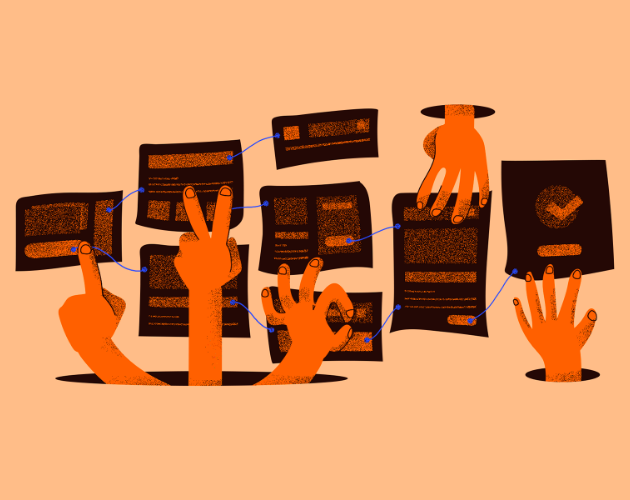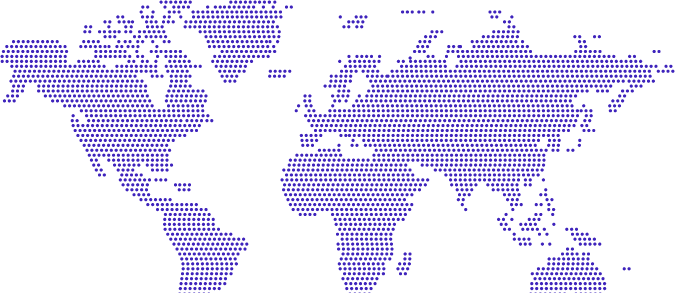Although the world continues its slow progress of the first shock, then shutdowns, then recovery and at last the new normal definitions, people were affected greatly by all of this experience. Could this profound effect permanently change people's buying behavior? Fear of contamination, isolation and economic uncertainty will in some cases change the behavior of consumers in the coming years.
New consumer behavior will change our behavior in a wide range of ways from our work life to entertainment and access to basic foods. Such rapid change directly affects retail companies. While the radical change in consumer behavior is still taking shape, it creates opportunities for companies both to shape the concept of the "new normal" and to make preparations.
Covid-19 changes the life of the consumer with its effects. In mere months, we have completed a process that was expected to take ten years to embrace as a digital phenomenon. Also, the development of customer behavior is not linear. Satisfaction ensures that the behavior is permanent. Thus, consumers can acquire habits in a much shorter time.
The future is closer than before. There is a new form of trade now, and delivery in this new way is a bigger part of this trade. People cannot visit large stores in large times let alone do it comfortably.
Covid-19 Changes Consumers' Behaviors in Every Area of Life
We see new behavior emerging in 8 areas of life (e.g. increase in e-commerce, change in brand preferences, higher unemployment) ...
1. Work
Increasing Unemployment
Decrease in consumption on the go
Remote work
2. Education
Orientation to local education opportunities
Distance Learning
3. Communication and Information
Decrease in face-to-face sampling
Change in media consumption
4. Travel and Mobility
Decrease in tourist spending and travel retail
Increase in domestic tourism
5. Shopping and Consumption
Increase in e-commerce
Preferring reliable brands
Luxury spending decline and sectoral contraction
Bigger basket, less shopping frequency
Heading to stores closer to home
6. Homelife
Mostly spending time at home
Do not linger with online consumption
7. Game and Entertainment Industry
Digital entertainment choice
Entertainment channel shift (e.g. from cinema to online platforms)
More time to play
8. Health and Preventive Medicine
Focus on health and hygiene
Increasing demand for organic, natural and fresh products
Increasing demand for pharmacies and doctors
Increase in fitness demand
Most of the Trends Are Accelerating Past Behaviors
When it comes to the evaluation of the digital environment and opportunities, we have experienced a ten-year change in the pandemic period within days. In the first four months of the pandemic, 7 million credit cards that had never been used for internet shopping in Turkey were opened to e-commerce. When only the path taken during the pandemic process and the expected times to reach this progress are compared, we come across a table as follows;
Online Delivery
It was speculated that it would take ten years to reach the share of online deliveries reached during the pandemic. The online delivery industry has reached this goal in just eight weeks.
Online Medical Service
The online medical support and service industry has grown tenfold in the first fifteen days of the pandemic.
Remote Working
In the first three months of the pandemic, the demand for online job interviews increased twenty-fold.
Distant Learning
In the first two weeks of the pandemic process, 250 million students received distance education through various applications in China alone.
Online Entertainment
With the increasing interest in online content and entertainment platforms during the pandemic period, Disney Plus reached the point Netflix reached in just 5 months.
Most Behaviors Will See a Linear Development Trend, or The New Normally Will Remain Stable At Least
Countries have begun lifting the restrictions one by one. Now there is only one step left in the world of the new normal. We will switch to the new normal by taking our habits that we have acquired during the pandemic period with us. After this stage, some of the habits we have acquired will dissipate, but some of them will be the determinants of the new normal.
So which habits will be permanent and which ones will we lose? Here are some predictions.
Consumption Will Definitely Decrease
Sectors that contracted after the pandemic will not grow immediately. The falling supply will continue to be below normal for a while. During the pandemic, people stayed away from international travel and turned to domestic tourism. Both restrictions and economic contraction had an effect on this. While the new normally international travel will return, the shrinking economy will continue to determine purchasing preferences. People will be more sensitive about the price of products and services than before. With this psychology, the market for unnecessary luxury products will shrink further.
The Order of Our Needs Will Change
During the pandemic process, we do not prefer on-the-go products and we shop as if there is a war. We buy more products at once, but we shop less. We will lose these habits in the new normal. With the end of restrictions and closures, our normal shopping order will return.
We will continue after the pandemic with the reliable brands we shop during the pandemic. This will become a new habit for us. In the pandemic process, the winners will be the big ones. And how much "No!" Even if you say, you will continue to spend time at home after the pandemic. You will not go back to your life before the pandemic. Of course, like a closing day, you will not spend all your time at home from morning to night, but it will not be the same as before. People will spend more time at home than in their old lives. Because their economy will be bad and they have found many ways to spend time at home during the pandemic.
It is predicted that we will move all of our sensitivities in hygiene and preventive medicine to a new normal. Even though we say goodbye to masks, we will continue to have cologne and disinfectant.
Dijital Konusunda Kazandığımız Alışkanlıklara Devam
Dijital dünya ile kurduğumuz bağlardan sadece eğlence tarafını kaybedecek gibiyiz. İnsanlar eğlence için ayırdıkları bütçeleri dışarıdaki aktivitelere kaydıracaklar. Evde vakit geçirmek bir aktivite olarak devam edeceğe benziyor ama dışarıyı da özledik doğrusu.
Diğer taraftan eğlence hariç tüm dijital alışkanlıklar olduğu gibi devam edecek. Uzaktan çalışma, uzaktan sağlık hizmetleri, e-ticaretin yükselişi kalıcı olarak hayatımızda yer ettiler.
Behavior Changes Will Reshape Consumers' Decision Journeys and Companies Need to Adapt Quickly
Consumers are not buying as before. Their economic situation, delivery possibilities, price sensitivity and hygiene priorities have changed. Now that they are buying the other way, they go through another decision journey and access the purchase. Retailers can act quickly through this transition and have opportunities to build new habits.
How Will Consumers Get Information About Products and Services?
Television is back temporarily. The fact that people spent too much time at home gave television an opportunity. But this is a temporary rise. The share of digital channels in advertising expenditures is increasing all over the world.
In addition, outdoor advertising is experiencing a decline. People spend less time in open spaces and are more nervous in these areas than before. In addition, store planning that provides face-to-face interaction will lose blood. ,
What Will Consumers Buy Normally?
Consumption has dropped and will continue to fall. It is estimated that the recovery will begin by 2023. What will people buy in this troubled economic environment?
What's in the Basket: Essential foodstuffs and health products. On the other hand, out of need and luxury consumption will shrink. This means that we will experience a contraction in general terms.
How Much Will They Buy: Our trend of collective shopping seems to continue. We will do fewer purchases and we will have large baskets. The stocking habit on the eve of the closure seems to stick to the consumer.
Which Brand to Prefer: People who will continue to work with big brands that do not have a supply problem during the pandemic. In the process, consumers who tried e-commerce for the first time preferred big brands due to their concerns. These habits will continue. Like all other crises, this crisis seems to be of great benefit.
Where to Buy: It's time to rethink omnichannel commerce. No more consumption on the go. This will remain a habit. The rate of e-commerce in the sale of basic necessities increased by 17%. This rate will not come back. Online trade of health and supplements has also peaked. E-commerce has taken the expected path in the next decade in a year.
Offline activities have changed with alternatives. We have a lot of online content platforms. Content producers are now adapting to producing movies, series and programs for these channels. Cinemas won't return to their old days.
We met with suppliers close to home. During the pandemic, we supplied all our basic needs from the closest markets to our house. This can take place in us as a habit. We may not want to go far, to big and crowded shopping centers.
The crowd turned into a fear for us. Sensitivity to hygiene will accompany humanity for a long time. Never again will you eat from plastic trays in the large dining area of a shopping mall, or change your clothes in a locker cabin used by hundreds of people.
Commercial Realities of the New Normal: Safe shopping is now an indispensable expectation for all consumers. This expectation of security spoils the joy of the shopping activity. Satisfied families who have dinner in a shopping center can now be history. Think about the children playing together on the playground ...
People will reduce the shopping to the level of their needs. Shopping will no longer be a pleasure but a necessity. Whatever we need, we will get out in abundance. We will take more and calculate the fewer arrivals.
Challenges For Retailers
In particular, the retail sector is the first line against challenges, as they will be in direct contact with people whose habits have changed.
Recommendations on Product Diversity
-
You have to rethink the value for money. Every penny is more valuable now than before the pandemic. Pricing, private labels, quality understanding, branding strategies and sales policies should be reconsidered based on this new value.
-
Focus on new needs; health, hygiene, immune supplements, organic and fresh food…
-
Reconsider your packaging policy. Larger packages will now be in demand.
-
Rethink about customer loyalty. Build a combination of A-quality brands, local suppliers, and safe sourcing.
Recommendations on Sales
-
Rediscover the shopping experience: Change store layouts and offerings, restructure the collection process, offer longer opening hours, and provide multi-channel delivery to ensure shopping in a hassle-free high hygiene environment.
-
Consumption is expected to shrink up to 15%. Make your financial planning by 2023 by building new sales channels.
-
You have to offer top-notch e-commerce experience. During this period, every investment you make for e-commerce will pay for itself. Be innovative in e-commerce. Find the right model for your business model and products, ranging from car service to live sales.
-
When it becomes difficult to gain new customers due to the contraction, focus on your existing customers. When the volume of business from tourists and travelers decreases, it can be beneficial to return to your old customers.
Marketing Advice
-
Consumers have changed where and how they interact. Marketing expenditures should also follow people for success.
-
Look for ways to be accessible across multiple touchpoints (Marka.com, platforms, e-retailers, own stores, multi-brand stores).
-
Rearrange resources into new ways of purchasing. You should shift your budget in outdoor advertising to social media phenomena and digital platforms.
-
Invest in customer relationships. It looks like it will be very difficult to acquire new customers. While retaining your old customers, you should provide attractive incentives for new ones.




